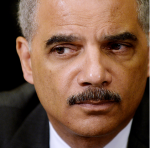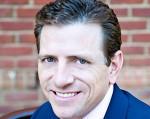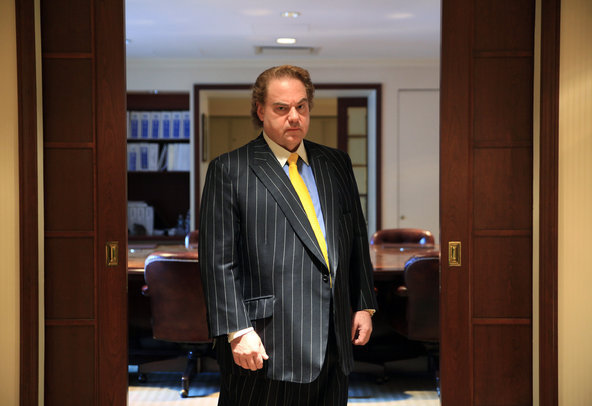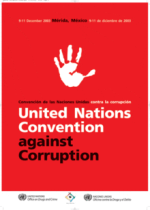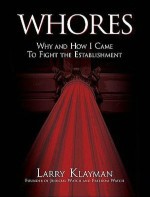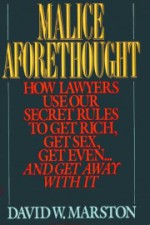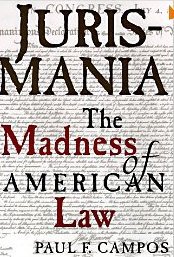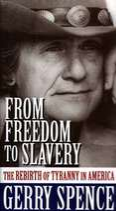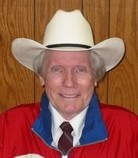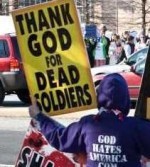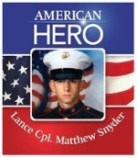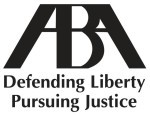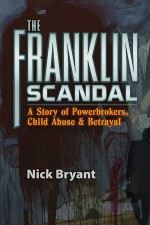Archives of the Justice Network Home Page
Patricia Timmons-Goodson nominated for long-vacant seat on
federal court bench
American Bar Association Daily News
By Martha Neil
April 29, 2016
Patricia Timmons-Goodson, a former North Carolina Supreme Court justice who currently is vice chairwoman of the U.S. Commission on Civil Rights has been nominated by President Barack Obama to a long-vacant seat on the state’s federal court bench.
Patricia Timmons-Goodson, who is a onetime member of the ABA Journal’s Board of Editors, was among eight nominees for judicial positions announced Thursday by the president. Goodson was the first black female to serve on the North Carolina Supreme Court when she joined the court in 2006. She retired from the state high court in 2012.
However, getting confirmed may not be entirely smooth sailing for Timmons-Goodson—Sen. Richard Burr, a Republican who is the state’s senior senator, say he would not submit the nomination to the Senate Judiciary Committee, the News & Observer reports.
The Fayetteville Observer also has a story.
Burr’s opposition appears to be motivated by the fact that Obama made the nomination in his final year as president, rather than in any objection to the candidate herself. The seat has been vacant for 10 years, for reasons that are not entirely clear, the News & Observer notes.
In a Thursday news release, Burr blamed Obama for "making a brazenly political nomination" and seemingly indicated he would not support any nomination by the president, according to the newspaper. Read more
Ambassador Samantha Power, U.S. Department of State
Ambassador Samantha Power to speak at
Penn's 259th Commencement, May 18, 2015
Ambassador Samantha Power is the United States Permanent Representative to the United Nations and a member of President Obama’s Cabinet. At the United Nations, Ambassador Power works to advance U.S. interests, promote and defend universal values, and address pressing global challenges to global peace, security, and prosperity. Read more
Wikipedia: Samantha Power (born September 21, 1970) is an Irish-born American academic, author and diplomat who currently serves as the United States Ambassador to the United Nations.
Eric Holder's parting shot: It's too hard to bring civil rights cases.
- Department of Justice
- House Judiciary Committee
- Office of Government Ethics
- Office of Legal Counsel
- Office of Professional Responsibility
- Senate Judiciary Committee
Instead Holder helped grant an unjust pardon to Marc Rich. See, How Eric Holder Facilitated the Most Unjust Presidential Pardon in American History, by Justin Peters, Slate's Crime blog.
UPDATE: Revisiting Eric Holder's parting shot:
It's too hard to bring civil rights cases.
Eric Holder's parting shot: It's too hard to bring civil rights cases, reported by politico.com, sounds absurd on its face because he was the Attorney General of the United States.
But when considered with the fact that many or most criminal civil rights violations are perpetrated under color of law (FBI), Holder's parting shot begins to make sense, as in the failure of the government to bring a civil rights case against David R. Ellspermann, Clerk and Comptroller of Marion County. Its too hard to bring civil rights cases because the government is so corrupt. Color of law (DOJ) cases are obstructed in many ways by corrupt federal judges, corrupt federal magistrates, corrupt AUSA’s and corrupt law enforcement. Also, the criminal justice system lacks a safe harbor to report obstruction of justice in color of law cases.
The American Bar Association and the NAACP issued a joint statement on Racial Bias in the Criminal Justice System, July 2015.
"The growing skepticism about the integrity of the criminal justice system is driven by real and perceived evidence of racial bias among some representatives of that system."
This is especially true in the Middle District of Florida, home of active support by "representatives of that system" for white supremacy racism, Lost Cause of the Confederacy, membership in the KKK, and its history of racial terror lynching.
Eric Holder wants lower bar for civil-ri[...]
Adobe Acrobat document [78.1 KB]
Marc Rich, most unjust pardon in America[...]
Adobe Acrobat document [108.4 KB]
Mismanagement at the Civil Rights Division of the U.S. Department of Justice
Hearing
Before The Committee On the Judiciary
HOUSE OF REPRESENTATIVES
One Hundredth Thirteenth Congress
First Session, April 16, 2013, Serial No.
113–10
Bob Goodlatte, Chairman of the House Judiciary Committee made this opening statement at a hearing on a House Judiciary Committee hearing on "Mismanagement at the Civil Rights Division of the Department of Justice."
investigated by the Florida Bar for "exercising free speech in the courtroom" - ABA Journal Law News Now
Foreclosure defense lawyer Matt Weidner was investigated by the Florida Bar for "exercising free speech in the courtroom" according to a story in the ABA Journal Law News Now. Foreclosure defense lawyer Chip Parker of Jacksonville faced a Florida Bar complaint for
comments he made during a CNN interview, according to a story in the ABA Journal Law News Now. He told the network, "Foreclosure courts throughout the state of Florida have adopted a system of ramming foreclosure cases through the final judgments and sale—with very little regard to the rule of law." He also complained of "an attack upon the citizens of the state of Florida by retired judges."
Daily Business Review.com, May 18, 2011
Lawyers investigated for criticizing sys[...]
Adobe Acrobat document [25.2 KB]
Elizabeth Warren and Bank Regulators At First
Hearing
Huffington Post
by Ryan Grimm
February 14, 2013
WASHINGTON -- Bank regulators got a sense Thursday of how their lives will be slightly different now that Elizabeth Warren sits on a Senate committee overseeing their
agencies.
At her first Banking, Housing and Urban Affairs Committee hearing, Warren questioned top regulators from the alphabet soup that is the nation's financial regulatory
structure: the FDIC, SEC, OCC, CFPB, CFTC, Fed and Treasury.
The Democratic senator from Massachusetts had a straightforward question for them: When was the last time you took a Wall Street bank to trial? It was a harder question
than it seemed. Read more
My letter to Sen. Warren, as filed in Petition No. 12-7747
Suit Offers a Peek at the Practice of Inflating a Legal Bill
New York Times DealBook
By PETER LATTMAN
March 25, 2013
World’s largest law firm DLA Piper overbilled the wrong client
- Adam H. Victor who fought back.
They were lawyers at the world’s largest law firm, trading casual e-mails about a client’s case. One made a sarcastic joke about how the bill was running way over budget.
Another responded by describing a colleague’s approach to the assignment as "churn that bill, baby!"
The e-mails, which emerged in a court filing late last week, provide a window into the thorny issue of law firm billing. The documents are likely to reinforce a
perception held by many corporate clients — and the broader public — that law firms inflate bills by performing superfluous tasks and overstaffing assignments.
The internal correspondence of the law firm, DLA Piper, was disclosed in a fee dispute between the law firm and Adam H. Victor, an energy industry entrepreneur. After DLA Piper sued Mr. Victor for $675,000 in unpaid legal bills, Mr. Victor filed a counterclaim, accusing
the law firm of a "sweeping practice of overbilling."
Mr. Victor’s feud with DLA Piper began after he retained the firm in April 2010 to prepare a bankruptcy filing for one of his companies. A month after the filing, a
lawyer at the firm warned colleagues that the businessman’s bill was mounting.
"I hear we are already 200k over our estimate — that’s Team DLA Piper!" wrote Erich P. Eisenegger, a lawyer at the firm.
Another DLA Piper lawyer, Christopher Thomson, replied, noting that a third colleague, Vincent J. Roldan, had been enlisted to work on the matter.
"Now Vince has random people working full time on random research projects in standard ‘churn that bill, baby!’ mode," Mr. Thomson wrote. "That bill shall know no
limits." Read more
Original court documents, DLA Piper v. Victor, 650374/2012
E-Mails Attached to Court Filing on Law Firm Billing
ABA Journal, Law News Now: ‘Churn that bill, baby!’ email surfaces in fee dispute with DLA
Piper, Martha Neil, March 25, 2013
New York Law Journal: DLA Piper Emails Reveal Firm Overbilled, Former Client Says, by Christine Simmons, March 26, 2013
UNODC's Action against Corruption and Economic
Crime
Corruption is a complex social, political and economic phenomenon that affects all countries. The United Nations Convention against Corruption (UNCAC) is the only legally binding universal
anti-corruption instrument. Signed by the United States December 9, 2003, and ratified by the United States October 30, 2006.
Wikipedia reports "In its 71 Articles divided into 8 Chapters, UNCAC requires that States Parties implement several anti-corruption measures which may affect their laws, institutions and practices."
UNCAC's Forward: "Corruption is an insidious plague that has a wide range of corrosive effects on societies. It undermines democracy and the rule of law, leads to violations of human rights, distorts markets, erodes the quality of life and allows organized crime, terrorism and other threats to human security to flourish. This evil phenomenon is found in all countries..." (English PDF).
The U.N. Global Compact site anti-corruption resources.
The International Covenant on Civil and Political Rights (ICCPR) The Carter Center
Signed by President Carter October 5, 1977
Ratified by the United States June 8, 1992
Article VI of the U.S. Constitution provides "...all Treaties made, or which shall be made, under the Authority of the United States, shall be the supreme Law of the Land; and the Judges in every State shall be bound thereby, any Thing in the Constitution or Laws of any State to the Contrary notwithstanding." (in part)
The Carter Center YouTube Channel
"Our legal system has frankly broken down"
Lawyer and author Larry Klayman spoke to Book TV about his book "Whores, Why and How I Came to Fight the Establishment" and claims
"Our legal system has frankly broken down, it has become a cesspool"
"Judges not making decisions on the merits, but on the basis of feathering the nests of those who got them their jobs"
"Lawyers who don’t tell the truth"
Larry Klayman, Esq., founder and former chairman of the successful non-profit foundations Judicial Watch and of Freedom Watch, has dedicated his career to fighting against injustice and restoring ethics to the legal profession and government.
Klayman has brought lawsuits against Hugo Chavez and OPEC, among others. Klayman details his legal battles with President and First Lady Bill and Hillary Clinton (Chinagate and Filegate), Vice President Dick Cheney (secret energy commission meetings), and the Bush administration over illegal wiretapping of American citizens. His portraits of the likes of Janet Reno, Fred Thompson, Arlen Spector, Judge Denny Chin (who recently presided over the Madoff trial) and other Clinton insiders Klayman considers unethical, and who have come back to power in the Obama administration, reveal not always flattering sides of their well-cultivated images. Klayman also has choice words to say about media figures such as Bill O'Reilly, Sean Hannity and Paula Zahn, and he accuses media mogul Rupert Murdoch of sandbagging the original publication of WHORES by HarperCollins because of the book's negative portrait of Roger Ailes and Fox News. Above all, WHORES is an impassioned plea for reform of our judicial system with a number of provocative suggestions. more
Larry Elliot Klayman is a member of the Florida Bar, ID number 246220, admitted December 7, 1977. Klayman was reprimanded by the Supreme Court of Florida, case SC11-247 on August 29, 2011.
Malice Aforethought - former US Attorney Dave Marston
Former US Attorney and Harvard Law School grad David W. Marston gave his opinion of the justice system in Malice Aforethought: How Lawyers Use Our Secret Rules to Get Rich, Get Sex, Get Even...and Get Away with It. C-SPAN2
Critique compares the practice of law and the justice system to the Mafia.
"They all have undergone the same tough initiation, and once admitted to membership, all have sworn the same oath. They live by their own rules and have fiercely
resisted efforts by outsiders to penetrate their clan. They have a code of silence that makes the Mafia’s dreaded omerta seem gossipy. And while the organization rigidly limits the operations of its
members to their assigned turf, their criminal activities within these areas are surprisingly varied." (Page 22, paragraphs 4 & 5)
"It’s not the Mafia. Not the Medellin drug cartel…The members are all lawyers. And the organization is the American legal profession." (Pages 23-24) Link to C-SPAN2 video
Justice: An Impossible Dream?
Margaret Koch-Nabialczyk
Juris-Mania - The Madness of American Law
Paul F. Campos is an author, blogger, and Professor of Law at the University of Colorado Law School. Campos writes a blog for The Daily Beast, another at Lawyers, Guns and Money, and his own blog, Inside the Law School Scam. Campos on Wikipedia
In Jurismania, Paul Campos asserts that our legal system is beginning to exhibit symptoms of serious mental illness. Trials and appeals that stretch out for years and cost millions, 100 page appellate court opinions, 1,000 page statutes before which even lawyers tremble with fear, and a public that grows more litigious every day all testify to a judicial overkill that borders on obsessive-compulsive disorder. Campos locates the source of such madness, paradoxically, in our worship of reason and the resulting belief that all problems are amenable to legal solutions. In insightful discussions of a wide range of cases, from NCAA regulations of student-athletes to the Simpson trial, from our most intractable social disputes over abortion and physician-assisted suicide to the war on drugs and the increasingly fastidious attempts to regulate behavior in public spaces, Campos shows that the mania for more law exacerbates the very problems it seeks to remedy. In his final chapter, the author calls instead for a humbling recognition of the limits of reason and a much more modest role for our legal system. Read more
- Jurismania publisher Oxford University Press
- Book review, The New York Times
- Book review, H-Net Online
Famed trial lawyer Gerry Spence says judges should be drafted:
"Our judges should be drafted in the same manner that jurors are drafted-to act as judges for a limited calendar of cases after which they would be released to return to their practices. Every trial lawyer should be required to support the system in this fashion the same as every citizen is required to serve as a juror. If judges were drafted from the trial bar we would soon clear our dockets, because we could call up as many judges as were necessary to bring our dockets current. If judges were drafted, we would no longer be saddled for life with the political cronies of those in power, or be faced with judges who have received campaign contributions from our opponents. To be sure, we would experience some bad judges. But, Lord knows, we have them now - and often for life! On the other hand, we would benefit from the best minds in the legal business, who, under our present system, rarely seek the judiciary." - Gerry Spence, page 57, From Freedom to Slavery, The Rebirth of Tyranny in America.
Snyder v. Phelps, 562 U.S. 443 (2011) U.S. Supreme Ct.
UPDATE: Fred Phelps has died; blog post by U.S. Judge Richard G. Kopf, Hercules and the Umpire, March 21, 2014.
Fred Phelps is a disbarred lawyer and pastor of the Westboro Baptist Church (WBC). Phelps has 13 children, 11 of whom are lawyers. Phelps and his church routinely picket the funerals of American service personal killed in the line of duty. Albert Snyder, the father of Matthew Snyder, a Marine who died in the Iraq War, sued Phelps. The case Snyder v. Phelps was decided by the US Supreme Court. The Court ruled in favor of Phelps in an 8-1 decision, holding that their speech related to a public issue, and was disseminated on a public sidewalk. Opinion (PDF)
Justice Samuel Alito, was the lone dissenting justice in this case, beginning his dissent with, "Our profound national commitment to free and open debate is not a license for the vicious verbal assault that occurred in this case." He concluded, "In order to have a society in which public issues can be openly and vigorously debated, it is not necessary to allow the brutalization of innocent victims like petitioner." (Dissent Alito)
Personal Opinion: Free speech is not absolute. This case is an exception: Fighting words and offensive speech.
To all the free speech advocates, try saying anything like the Phelps diatribe to a judge, or put it in a pleading, and see how far you get. Sanctions? Contempt? Disbarment? (Dead Marine's father ordered to pay protester's legal costs)
When the SCOTUS allows free speech in a courtroom or pleading, no matter how hateful, I’ll buy the free speech argument. Otherwise this is little more than government sanctioned desecration of a US serviceman and his family during a private funeral. Thanks Justice Alito - Neil Gillespie
Snyder v Phelps 09-751 SCOTUS.pdf
Adobe Acrobat document [245.4 KB]
Justices’ Ruling Expands Rights of Accused in Plea Bargains
The New York Times
By ADAM LIPTAK
March 21, 2012
WASHINGTON — Criminal defendants have a constitutional right to effective lawyers during plea negotiations, the Supreme Court ruled on Wednesday in a pair of 5-to-4
decisions that vastly expanded judges’ supervision of the criminal justice system.
The decisions mean that what used to be informal and unregulated deal making is now subject to new constraints when bad legal advice leads defendants to reject favorable
plea offers.
"Criminal justice today is for the most part a system of pleas, not a system of trials," Justice Anthony M. Kennedy wrote for the majority. "The right to adequate
assistance of counsel cannot be defined or enforced without taking account of the central role plea bargaining takes in securing convictions and determining sentences." Read more Related story in the ABA Journal
For One Prisoner, Nutriloaf Diet May Violate Eighth
Amendment, Posner Opinion Says
ABA Journal Law News Now
By Debra Cassens Weiss
March 28, 2012
A federal appeals court has reinstated a lawsuit filed by a prisoner who claimed the nutriloaf he ate in the Milwaukee County Jail was cruel and unusual
punishment.
The opinion (PDF) by Judge Richard Posner of the Chicago-based 7th U.S. Circuit Court of
Appeals suggested appointment of counsel for the inmate, Terrance Prude, who vomited and suffered an anal fissure after eating nutriloaf at the jail during a stay to attend court proceedings. Jail
officials gave Prude bread and water as a substitute, and his weight dropped from 168 to 154 after two stays at the facility. Other inmates at the jail also vomited after eating nutriloaf.
Withholding nutritious food or substituting sickening food, causing substantial weight loss, vomiting and maybe an anal fissure would violate the Eighth Amendment, Posner said. He cited Wikipedia for the proposition that such a fissure is "no fun at all."
The defendants, including Sheriff David Clarke Jr., did not disclose the nutriloaf recipe in response to discovery demands. "No evidence was presented concerning the recipe for or ingredients of the nutriloaf that was served at the county jail during the plaintiff’s sojourns there," Posner wrote. " ‘Nutriloaf’ isn’t a proprietary food like Hostess Twinkies but, like ‘meatloaf’ or ‘beef stew,’ a term for a composite food the recipe of which can vary from institution to institution, or even from day to day within an institution; nutriloaf could meet requirements for calories and protein one day yet be poisonous the next if, for example, made from leftovers that had spoiled."
Posner said the defendants ignored discovery demands and the trial judge’s order that they comply. The defendants also failed to file an appellate brief and failed to respond to an order to show cause whey they didn’t do so. "They seem to think that the federal courts have no jurisdiction over a county jail," Posner said. The appeals court issued an order to show cause why the defendants should not be sanctioned for contumacious conduct and warned they "will find themselves in deep trouble" if they fail to comply.
The case is Prude v. Clarke. Hat tip to How Appealing. Read more
Related story, Taste-Testing Nutriloaf, by Arin Greenwood of Slate
28 U.S. Code § 531 - Federal Bureau of Investigation: The Federal Bureau of Investigation is in the Department of Justice.
Federal Bureau of Investigation
FBI Wikipedia
US Dept. Homeland Security
DHS Wikipedia
Oath Keepers is a non-partisan association of currently serving military, reserves, National Guard, peace officers, fire-fighters, and veterans who swore an oath to support and defend the Constitution against all enemies, foreign and domestic … and meant it.
Mother Jones: The Oath Keepers, founded by Yale-educated lawyer and ex-Ron Paul aide Stewart Rhodes, Mother Jones
Franklin Scandal
Conspiracy of Silence Documentary
Nick Bryant's writing has recurrently focused on the plight of disadvantaged children in the United States, and he’s been published in numerous national journals,
including the Journal of Professional Ethics, Journal of Applied Developmental Psychology, Journal of Social Distress and Homelessness, Journal of Health Care for the Poor and Underserved, and
Journal of School Health. He is the co-author of America’s Children: Triumph of Tragedy, addressing the medical and developmental problems of lower socioeconomic children in America. Nick Bryant





